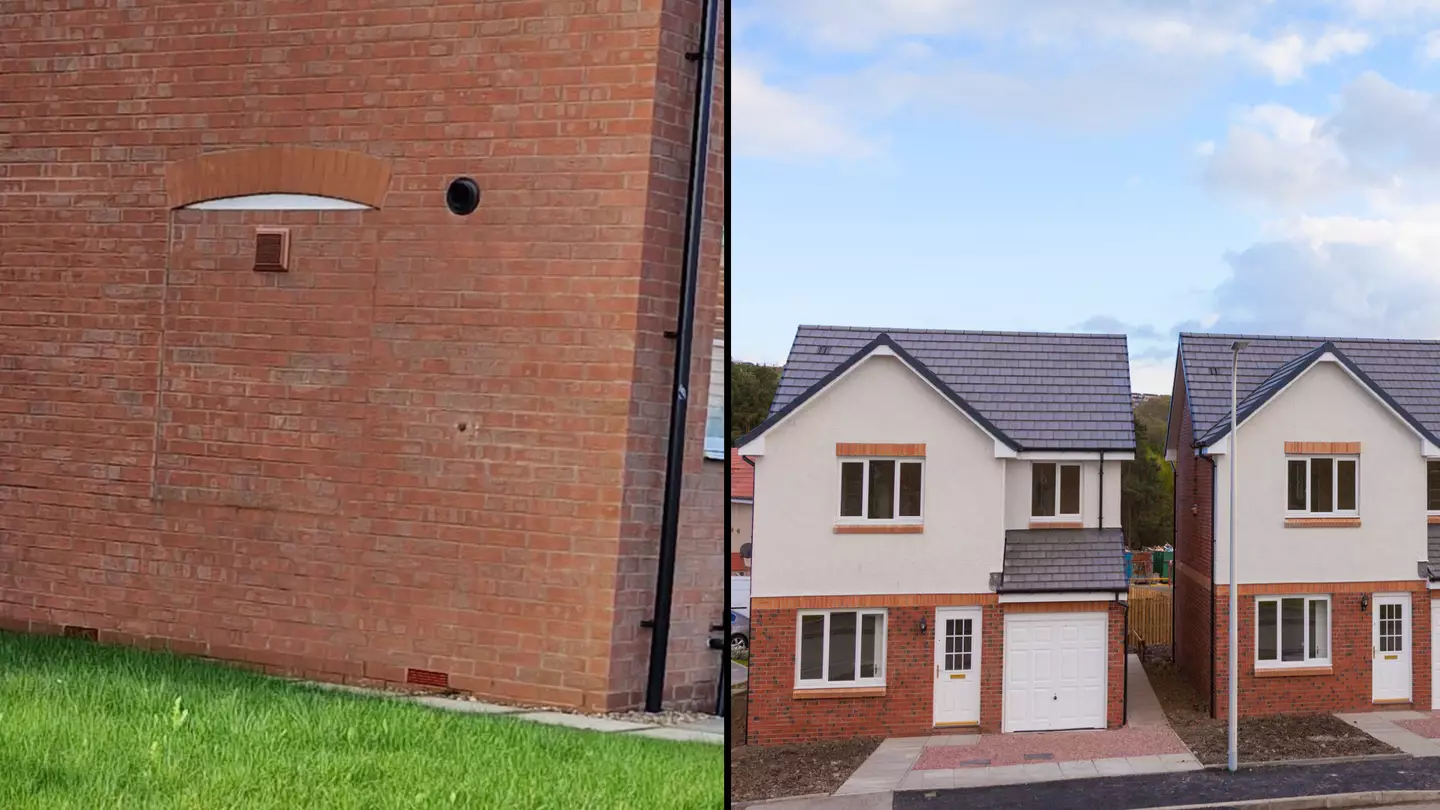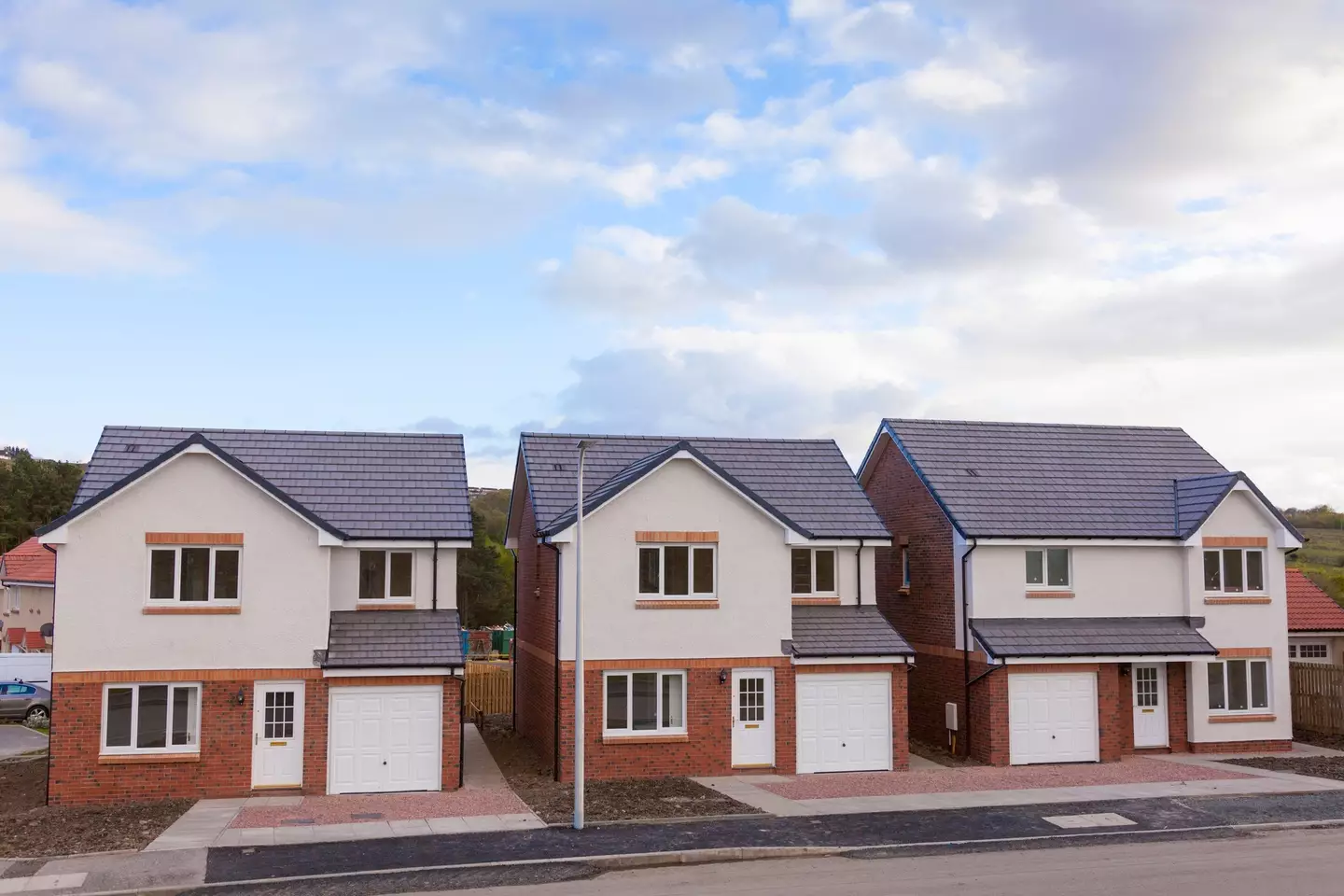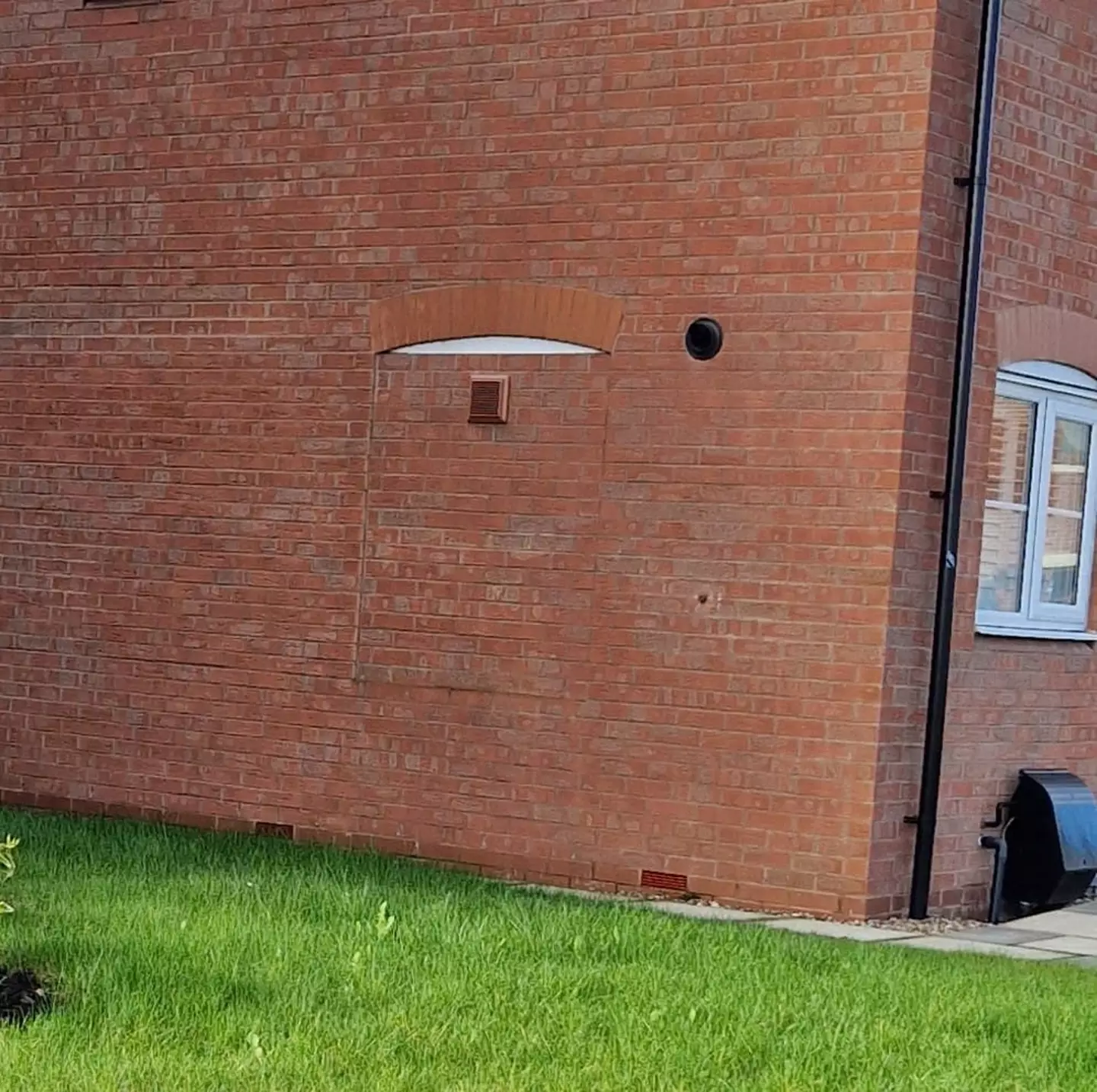
When it comes to buying a house, you want to find a property that has some character and reflects your personality.
Something about it that makes it stand above the rest.
Or, given the current housing climate, you're probably just looking for something you can afford.
But one thing you may have noticed about new build houses is that some have bricked up windows. Odd, right?
Advert

What would be the point of filling in a window on a house?
It would defeat the entire purpose of a window, which is to allow to look out of your house and get some fresh air.
This question was posed recently on Facebook, and people had their own theories.
One person wrote: "It's the new gateway to Hogwarts. Run straight at it really fast; you'll figure it out."
Advert
Another commented: "Think it’s cause they are all pre-made to certain specs and whoever bought it didn’t want the window there in the end and they filled in it before completion."
So, what is the actual truth?
It's all being done in the aim of making the property look older than it actually is.
One commenter explained: "These are faked bricked up windows. Developers add them because they think it looks more period authentic. Its to mimic old houses from when the Window Tax was in force in the UK 1696 -1851.
"People were taxed on the number of windows they had in their houses so many windows were bricked up to reduce tax paid by home owners.
Advert
"Totally pointless in the 21st Century new builds and looks crap frankly."
It may be news to many people that there ever was such a thing as a Window Tax.

The Window Tax
The tax started in the UK in 1696, operating under the idea that wealthy people had more windows in their home, so they should therefore pay more tax.
Advert
Poor people could steer clear of the tax altogether if they had less than ten in their dwelling.
However, the tax became a bit of a disaster, as rich people got wise to it and started filling up their windows with bricks.
This led to high rise buildings bearing the brunt of the taxation, and the tenants in these buildings having their rents raised.
Buildings were soon being constructed without any windows at all, creating a practically unlivable environment.
The issue gripped the attention of many Brits, including the great Charles Dickens who got involved with the debate.
Advert

The Oliver Twist author commented on the subject in magazine Household Worlds back in 1850.
He said: "The adage ‘free as air’ has become obsolete by Act of Parliament. Neither air nor light have been free since the imposition of the window-tax.
"We are obliged to pay for what nature lavishly supplies to all, at so much per window per year; and the poor who cannot afford the expense are stinted in two of the most urgent necessities of life."
Partly due to his intervention, the Window Tax was thankfully repealed in 1851.
Learn something new every day, right?
